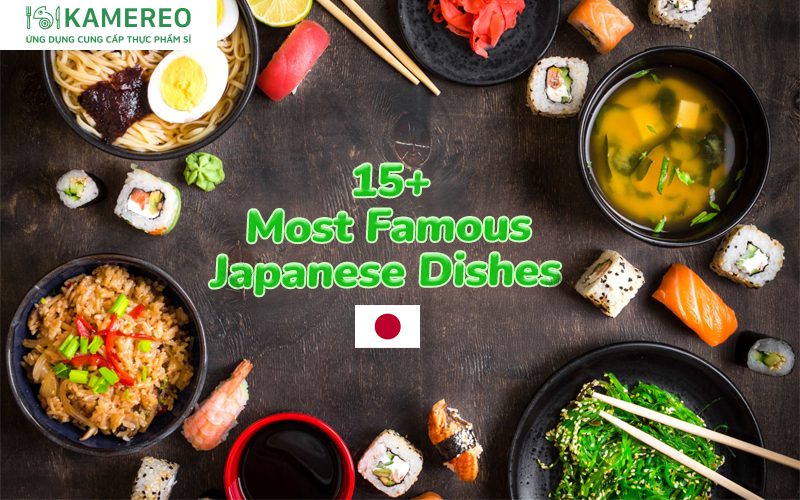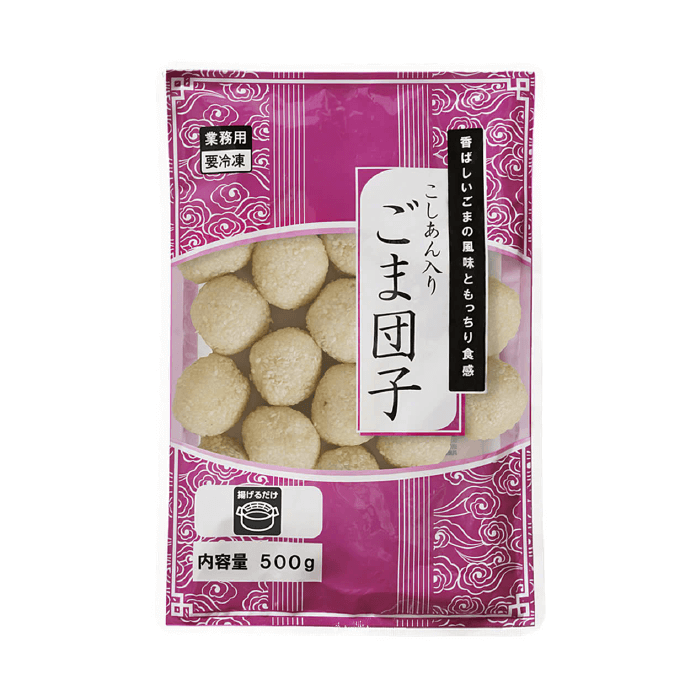Japanese cuisine has long been famous for its sophistication and meticulousness in every detail. Beyond the delicious flavors, Japanese dishes are a harmonious combination of art and culture. Let Kamereo explore 15+ famous dishes, the most typical representatives of the rich and diverse cuisine of the land of the rising sun.
Sushi
Sushi is one of the most famous traditional Japanese dishes, showcasing the sophistication and meticulousness of the cuisine. The main ingredients of sushi are vinegared rice combined with seafood such as salmon, shrimp, and abalone. In addition, sushi is also served with vegetables such as cucumber, pickled radish, and wasabi (mustard) to enhance the flavor.
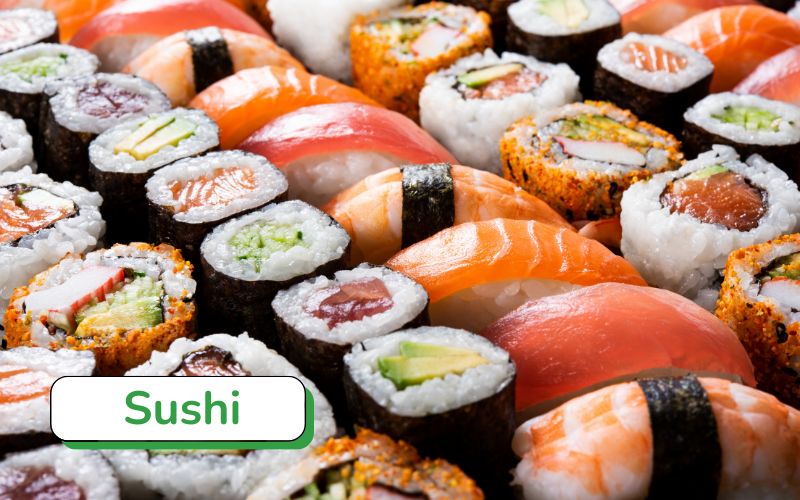
Sashimi
Sashimi is a unique Japanese specialty consisting of slices of fresh fish or seafood, thinly sliced and usually served with seasonings such as wasabi and soy sauce. Popular seafood in sashimi includes salmon, shrimp, squid, tuna, and octopus. The special feature of sashimi is maintaining the fresh, natural flavor of the seafood without heat processing.
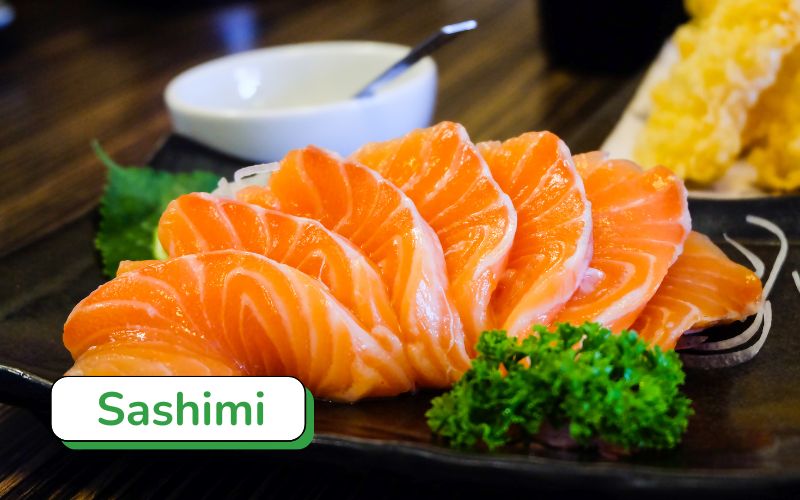
Noodle Dishes
Japanese cuisine is not only famous for sushi and sashimi but also a paradise for noodle lovers. From rich ramen and chewy udon to refreshing soba, each noodle dish has a unique flavor, reflecting the sophistication of Japanese cuisine:
Ramen Noodles
Ramen noodles stand out with their small, bright yellow strands. This dish is often combined with various appealing ingredients such as Japanese fish cakes, sliced pork, soft-boiled eggs, dried seaweed, sweet corn, and fresh cabbage. The special highlight of ramen noodles lies in the rich broth, simmered thoroughly from pork bones. This elaborate bone-simmering process helps extract the full sweet and naturally fatty flavor.
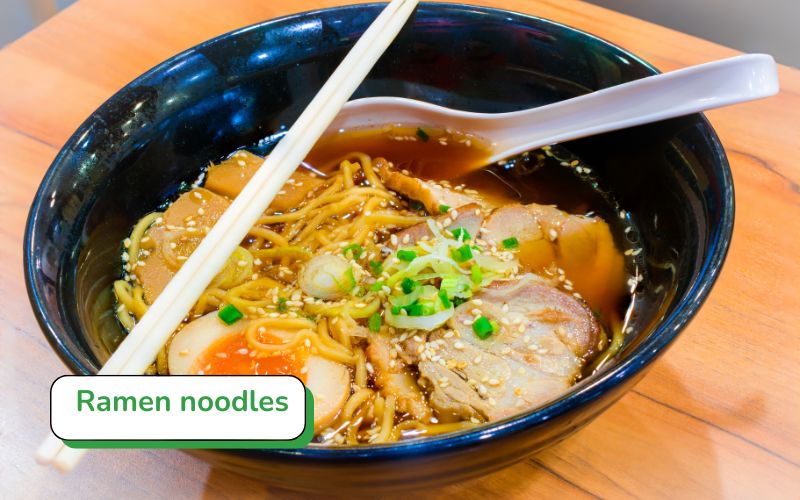
Udon Noodles
The special feature of udon noodles is their large, chewy, thick strands, made from wheat flour, salt, and water. This dish has two main versions: hot noodles and cold noodles. Cold noodles are usually preferred in summer, combined with fresh cabbage and cucumber. Conversely, in winter, hot udon noodles are enjoyed with a rich dashi broth, cooked from various types of fish, vegetables, and seaweed, combined with soy sauce and Mirin wine.
During Japanese holidays, udon noodles are also a symbolic dish wishing for luck and happiness.
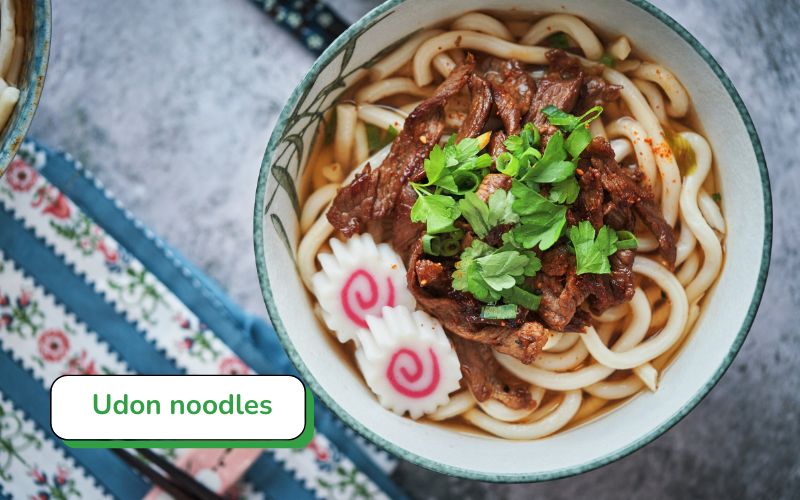
Soba Noodles
Soba noodles are a unique type of Japanese noodle, made from buckwheat, bringing a distinctive flavor and high nutritional value. Soba noodles have thin, gray-brown strands characteristic of buckwheat. This dish has many variations, the most popular of which is Mori Soba, i.e., cold soba noodles, served on a bamboo basket or plate, with a side of soy sauce.
In particular, the Japanese have a tradition of eating Toshikoshi Soba on New Year’s Eve as a wish for a peaceful and long life. “Toshikoshi” in Japanese means “New Year’s Eve,” and the long soba noodles are seen as a symbol of longevity and eternity.
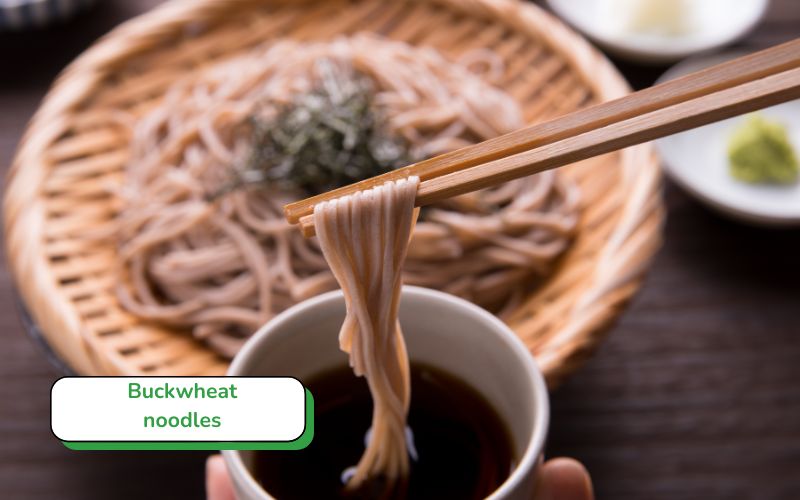
Fried and Grilled Dishes
If you are a fan of crispy and fragrant dishes, do not miss the Japanese fried and grilled dishes:
Tonkatsu Fried Pork Cutlet
Tonkatsu, or fried pork cutlet, is one of the most popular Japanese dishes. The main ingredient of this dish is pork cutlet, coated with wheat flour and eggs, then covered with a layer of panko breadcrumbs. The meat is deep-fried until golden brown, creating a characteristic crispy crust.
After frying, tonkatsu is cut into bite-sized pieces, often served with shredded cabbage and miso soup. This dish is also dipped in Tonkatsu sauce (Tonkatsu Sosu), a special sauce made from fresh apples. To enhance the flavor, a little Karashi mustard and a slice of fresh lemon are usually added.
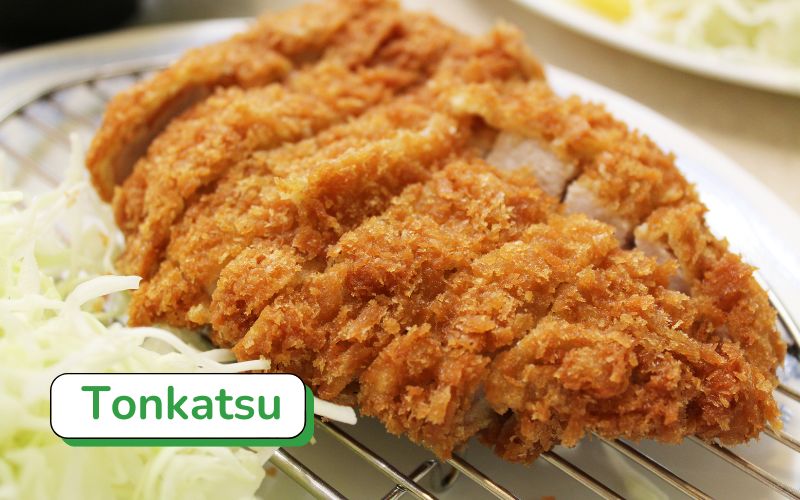
Okonomiyaki Pancake
Okonomiyaki, or Japanese pancake, is a famous street food. The pancake is made from a mixture of wheat flour, eggs, dashi broth, and finely chopped cabbage. These ingredients are mixed well and grilled on a Teppan griddle. Depending on preference, meat or seafood can be added to the filling.
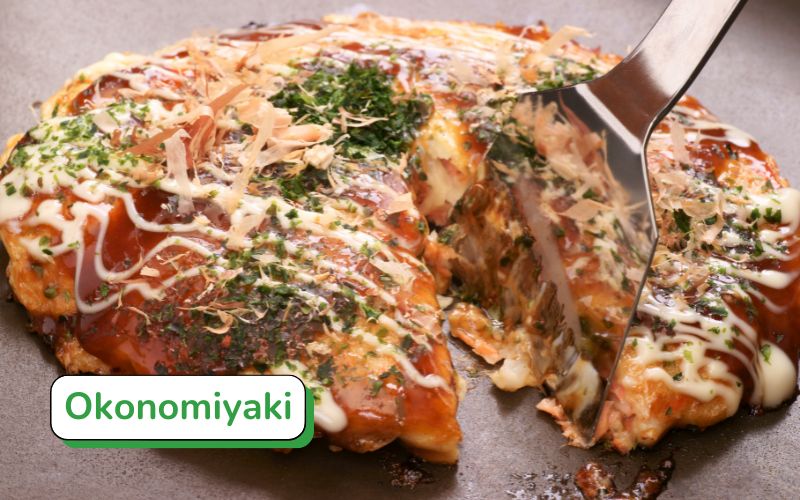
Takoyaki Octopus Balls
Takoyaki is a famous snack of the Osaka region, Japan, loved by many people. This cake has a small, round shape, inside is a chewy octopus filling, baked golden brown on a special mold. The cake has a crispy crust, soft inside, combined with greasy mayonnaise, creating an attractive dish.
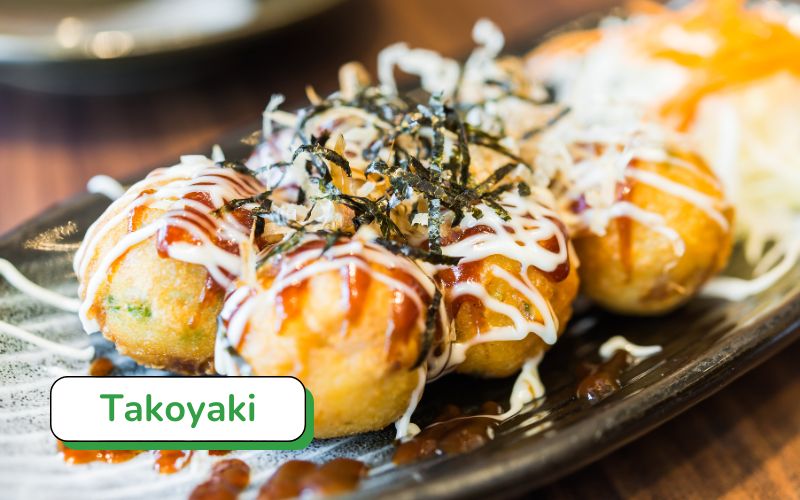
Tempura
Tempura is a typical fried dish of Japanese cuisine, a delicate combination of fresh seafood and seasonal vegetables, all coated with a special batter. This batter creates a crispy crust, enveloping the soft, sweet filling inside, bringing an irresistible flavor. Tempura is not only enjoyed alone but also can be combined with many other dishes such as white rice, cold noodles, Kakesoba hot noodles, or rice balls (Tenmusubi)…
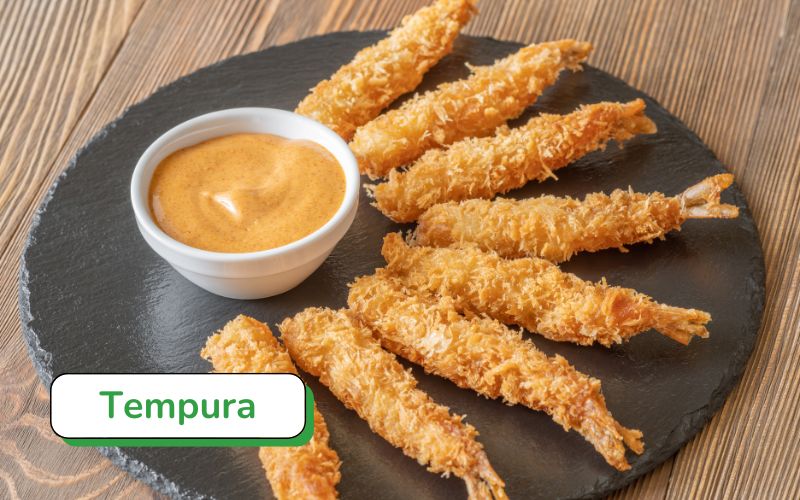
Yakitori Grilled Chicken Skewers
This is a popular grilled chicken skewer dish in Japanese street food. Yakitori usually uses many different parts of chicken such as breast, thigh, skin, liver, and other parts, skewered on bamboo sticks and grilled over charcoal. The special feature of Yakitori lies in the rich “tare” sauce, made from sweet mirin wine, sake wine, and brown sugar, creating a harmonious salty-sweet flavor.
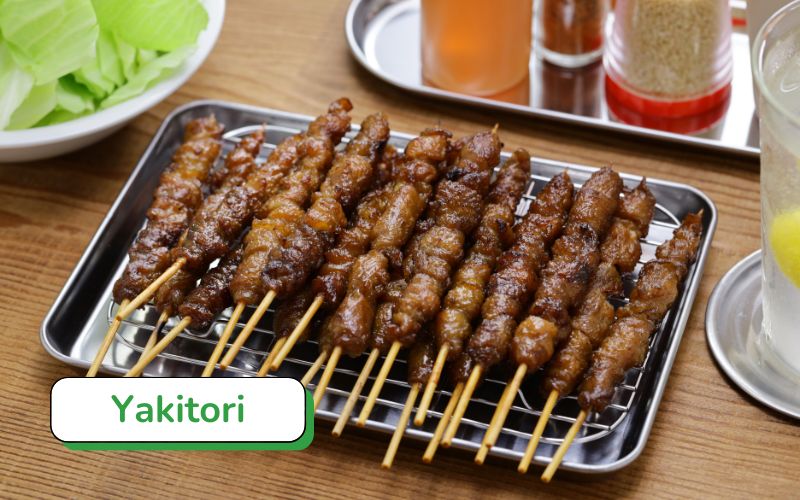
Rice Dishes
Rice is not only the staple food of the Japanese but also the ingredient for many unique dishes, including:
Onigiri Rice Balls
Onigiri, or rice balls, are one of the long-standing traditional Japanese dishes, associated with the daily life of the people. The rice used to make onigiri is usually Japanese rice, famous for its softness, high stickiness, and ideal moisture, making it easy to shape. The filling of onigiri is diverse, including popular ingredients such as salmon, flaked tuna, salted eggs, and many other ingredients.
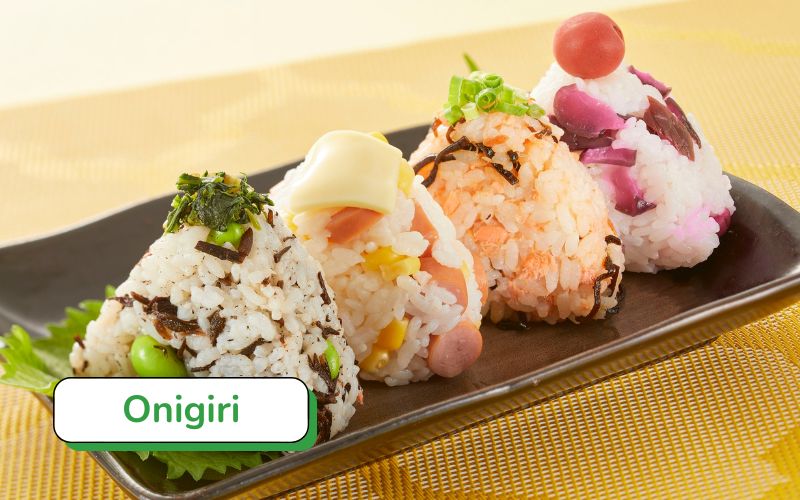
Japanese Curry
Curried rice, also known as “kare raisu” in Japanese, is a popular daily dish in Japan. Although curry originated from India, Japanese curry is different in that it is usually sweeter, less spicy, thicker, and more viscous. In addition, Japanese curried rice is also served with many attractive toppings such as fried chicken, squid, fried shrimp…
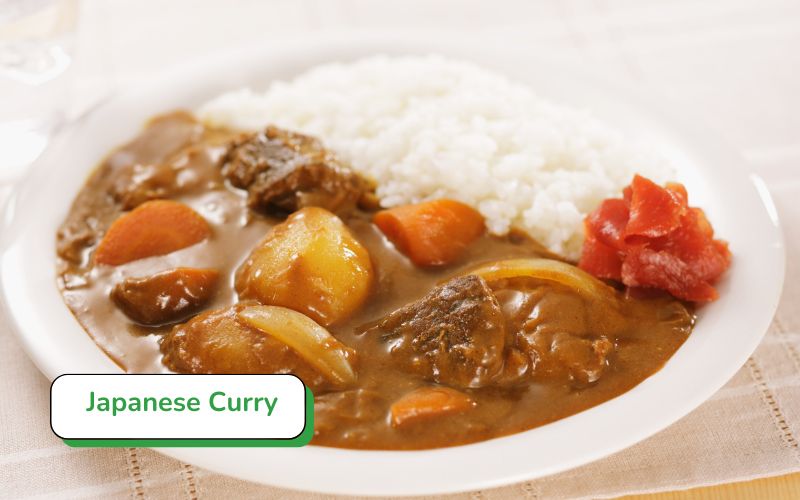
Unagi-don Eel Rice
Eel rice – a famous traditional Japanese dish, called “unadon” or “unagi-don.” This dish consists of white rice served in a lacquer box or bowl, then drizzled with seasoning and topped with Japanese-style grilled eel. Eating eel rice in the summer is considered a traditional custom in Japan, because eel provides abundant energy and helps the body fight fatigue caused by hot weather.
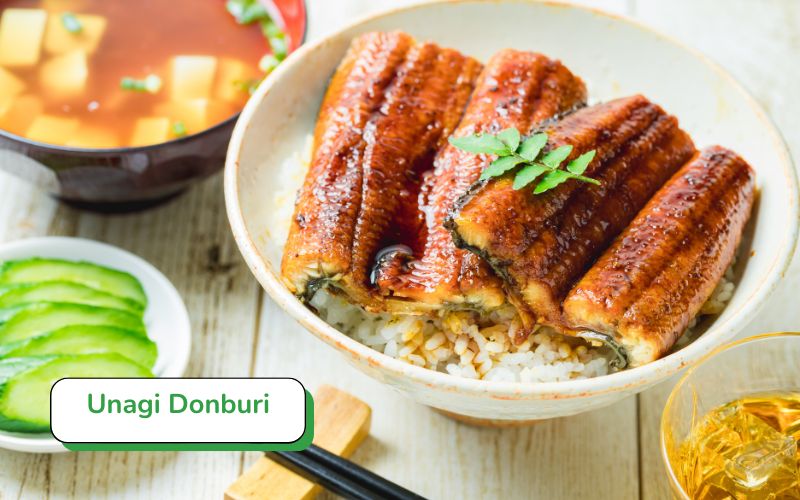
Ochazuke Tea Rice
This is a simple dish, usually made from leftover rice from the previous day. Ochazuke green tea rice became popular in the Edo period and continues to be popular to this day. Since the 1970s, Ochazuke has been transformed with many salty ingredients, creating diversity and attractiveness for this dish.
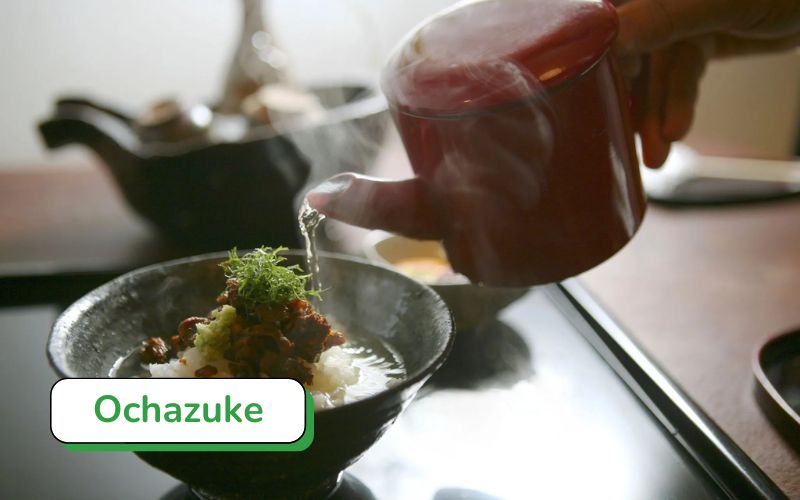
Donburi Rice Bowl
Donburi is a Japanese rice bowl dish, with rice and side dishes served in a large bowl. This is a combination of many different ingredients such as eel, salmon roe, tempura, chicken, pork, beef, and vegetables. When visiting Japan, you can choose to try some famous types of donburi such as gyudon, tendon, unadon, and tamagodon…
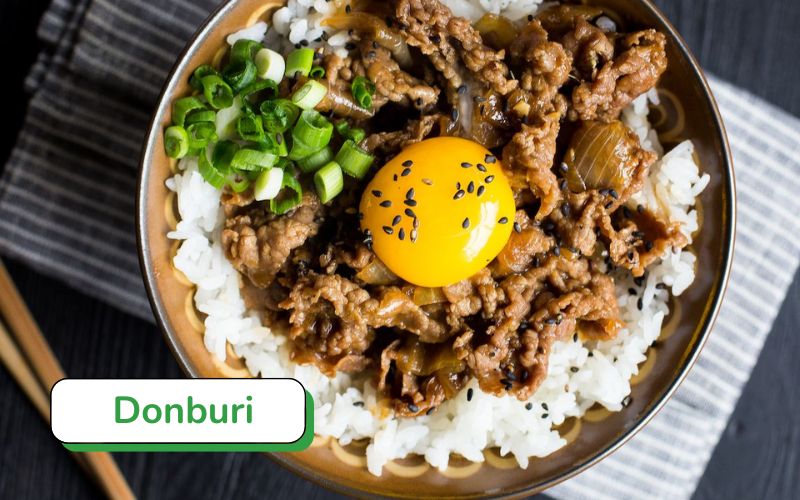
Desserts
After the rich main dishes, you can enjoy sweet and delicious Japanese desserts such as:
Mochi Cake
Mochi is a traditional Japanese sweet rice cake, characterized by its chewy skin made from tapioca starch and glutinous rice flour, with a variety of attractive colors. Mochi fillings are diverse, ranging from cool fresh cream to delicious fresh fruit, catering to the preferences of many.
In particular, mochi plays an important role in traditional Japanese rituals. During the Choto-shiki new house building ceremony and the Lunar New Year, mochi is an indispensable offering, symbolizing wishes for a prosperous and long new year.
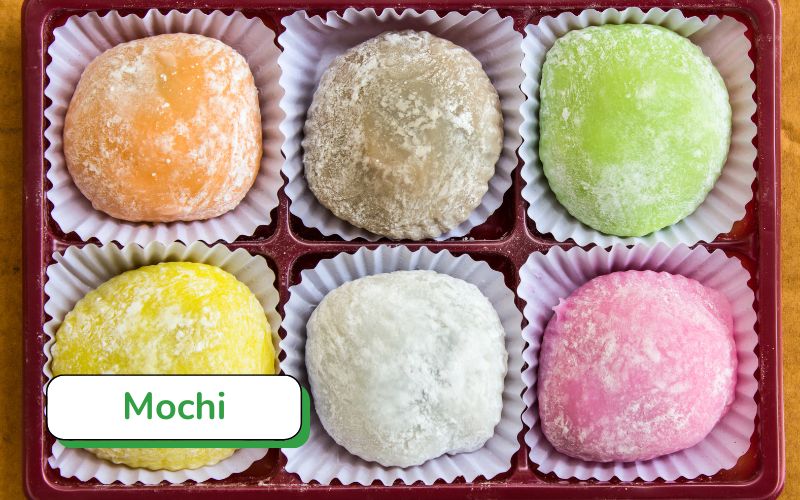
Taiyaki Fish-shaped Cake
Taiyaki is a sea bream-shaped baked cake, first appearing in 1909 at the Naniwaya confectionery store in Tokyo. The Taiyaki crust is made from diluted wheat flour, poured into a double-sided fish mold and baked until golden brown. The traditional filling is Azuki beans, but today, many other attractive flavors have been created such as cheese, chocolate, matcha, custard, sausage, gyoza, okonomiyaki and ice cream…
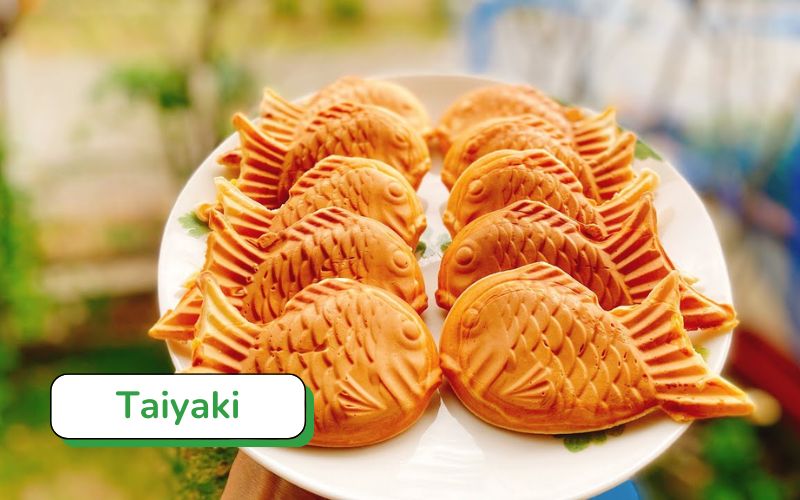
Wagashi Sweet Cake
Wagashi is the general name for traditional Japanese sweet cakes, notable for their natural plant-based ingredients and sophisticated presentation. Each Wagashi cake is meticulously shaped, inspired by natural images such as peach blossoms, apricot blossoms, maple leaves or snowflakes. The filling is usually made from red beans, symbolizing humans as the center of the universe.
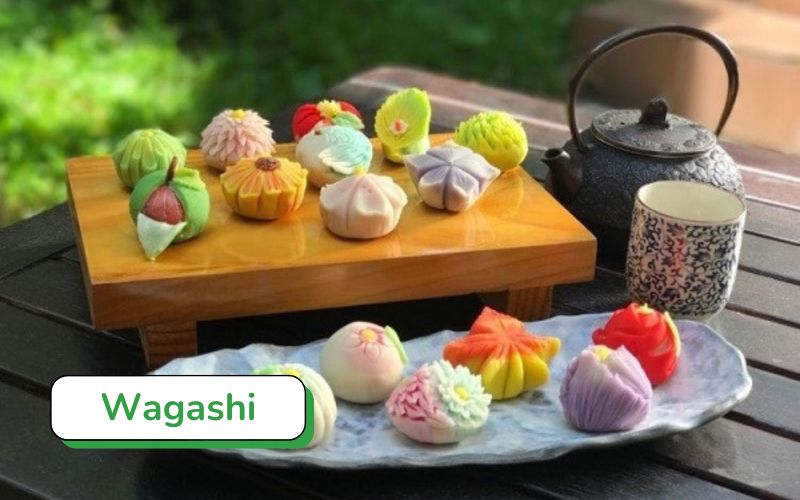
Kamereo – Standard Japanese Domestic Food Supplier
Kamereo is a wholesale food supply application for F&B businesses. Proud to be a strategic partner with Gyomu Japan – a chain of Japanese domestic supermarkets, Kamereo offers genuine Japanese domestic products at competitive prices in Vietnam. Food storage and preservation warehouses are equipped with modern cold storage and strict quality control processes, products at Kamereo are always guaranteed to be of the best quality when they reach customers.
Not only stopping at food supply, Kamereo is also a partner accompanying F&B businesses in building a transparent, modern and sustainable supply chain ecosystem. Kamereo’s comprehensive supply solution helps businesses operate with peace of mind, ensuring that goods are always available, of the right quality and delivered quickly.
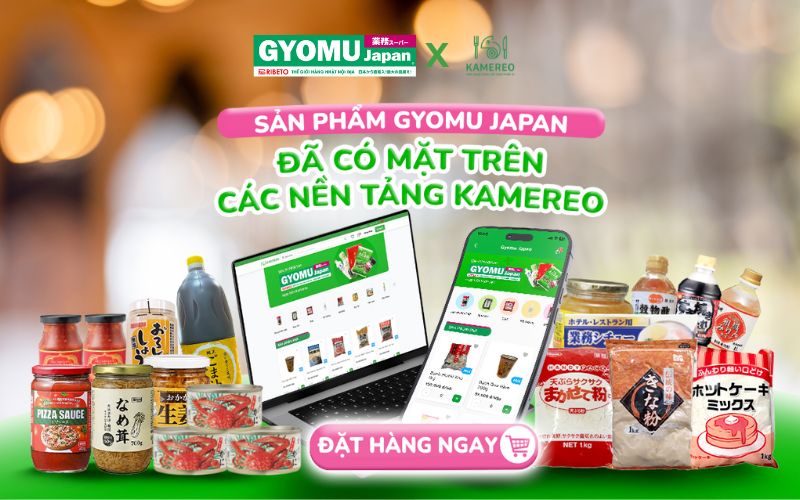
Kamereo’s biggest difference compared to traditional food suppliers is the application of technology to optimize the entire purchasing and cost management process for F&B businesses. Businesses can easily update product prices online quickly on Kamereo’s application and website. This helps you make smarter and more efficient purchasing decisions, saving time and costs.
[/highlight]
Best-selling Japanese domestic products at Kamereo:
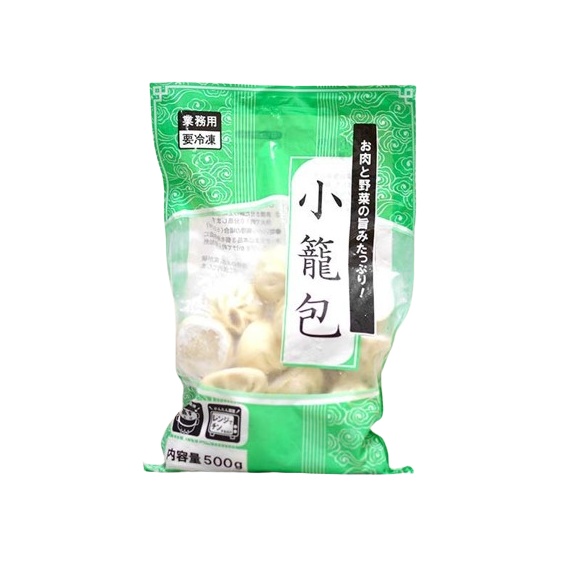
Frozen Soup Dumplings 500g
199,000đ/PACK
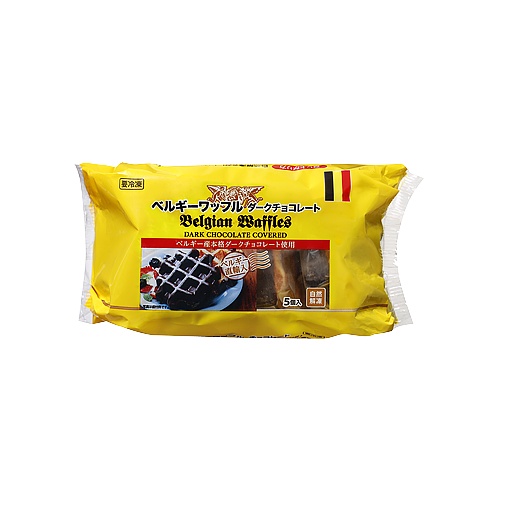
Belgian Frozen Waffle With Chocolate Flavor 300g
100,000đ/PACK
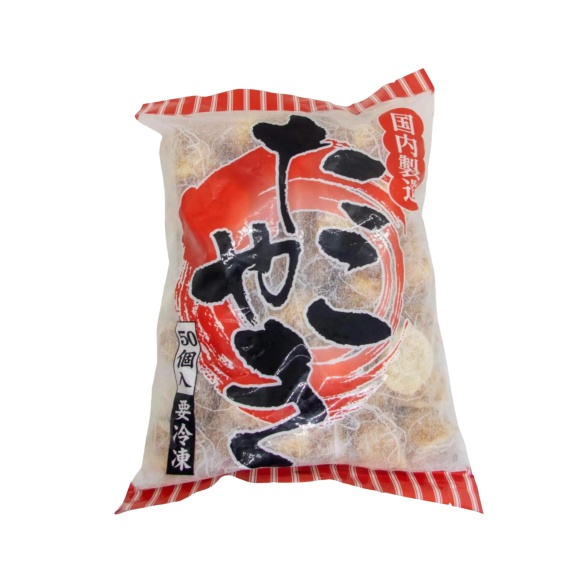
Frozen Takoyaki (Octopus Balls) 1kg
219,000đ/PACK
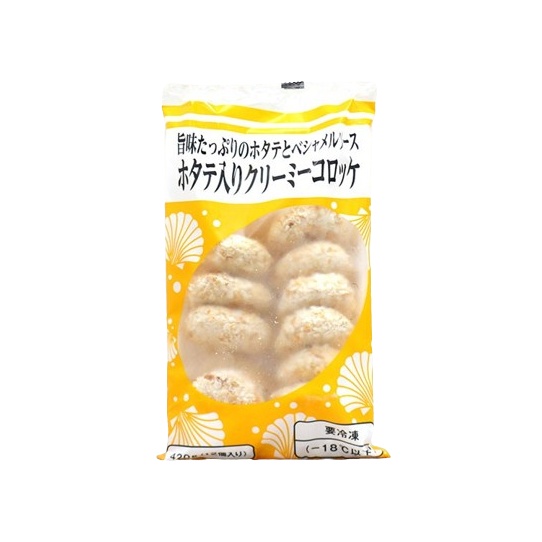
Frozen Fried Scallop Cakes With Cream Sauce 420g
175,000đ/PACK
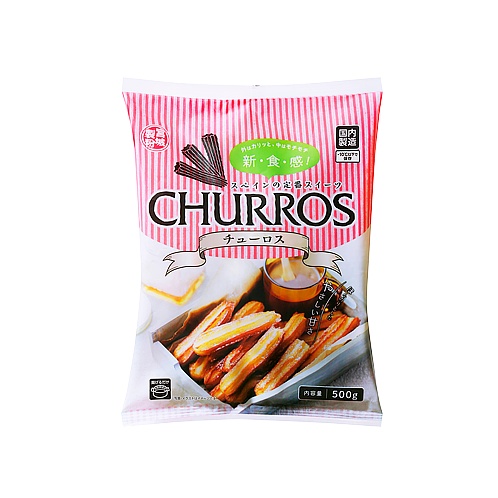
Frozen Churros 500g
52,683đ/PACK
54,000đ/PACK
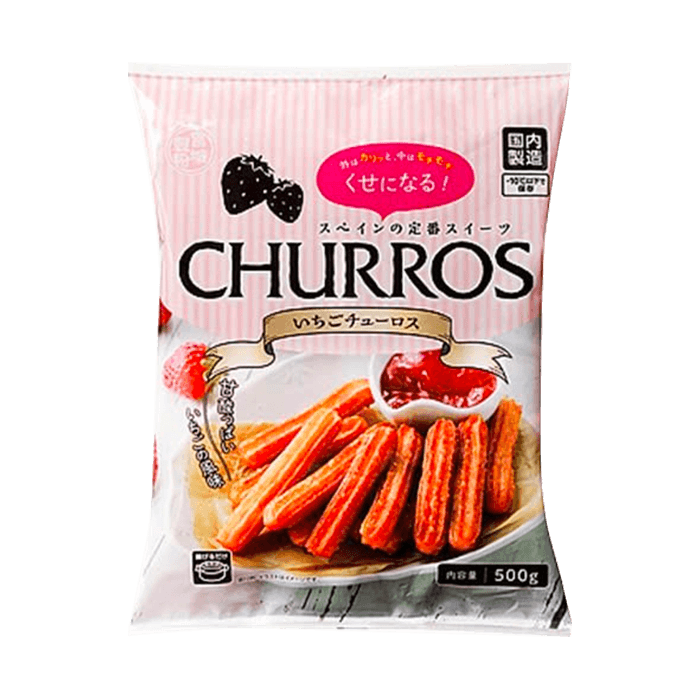
Frozen Strawberry Churros 500g
55,000đ/PACK
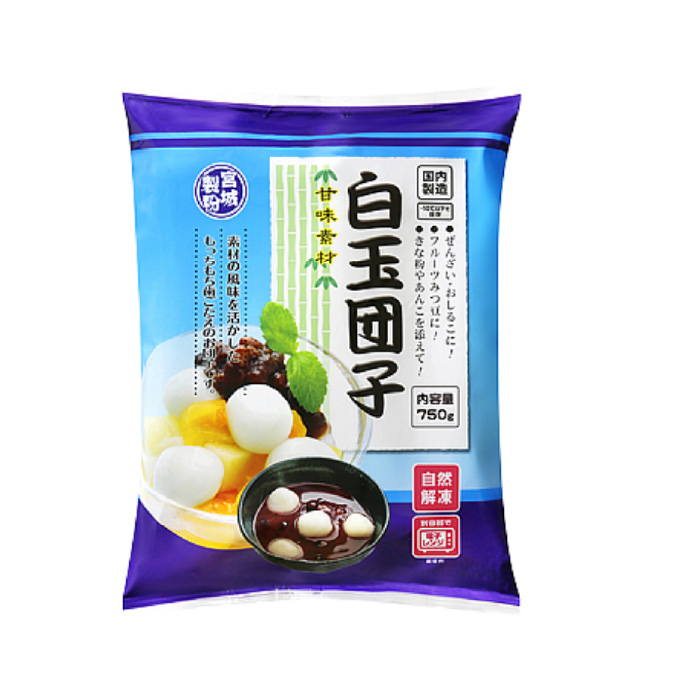
Frozen Shiratama Dango 750g
100,000đ/PACK
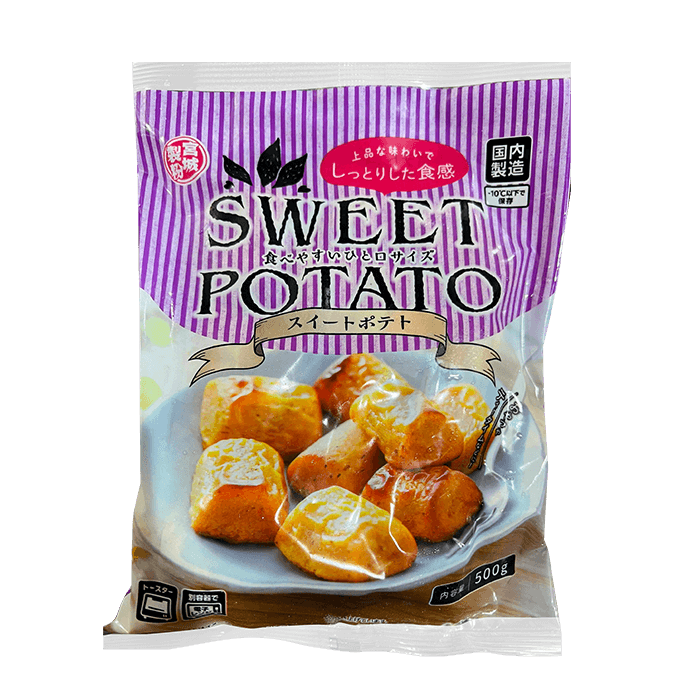
Frozen Sweet Potato Cake 500g
105,000đ/PACK
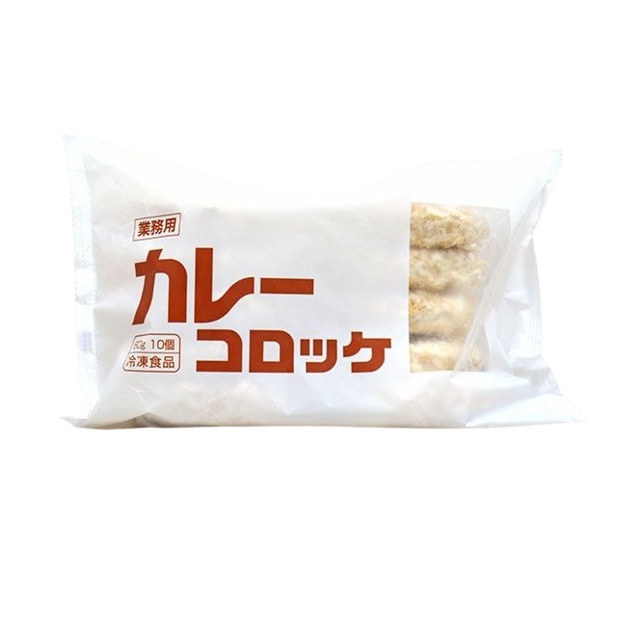
Korokke Frozen Curry Filled 600g
99,000đ/PACK
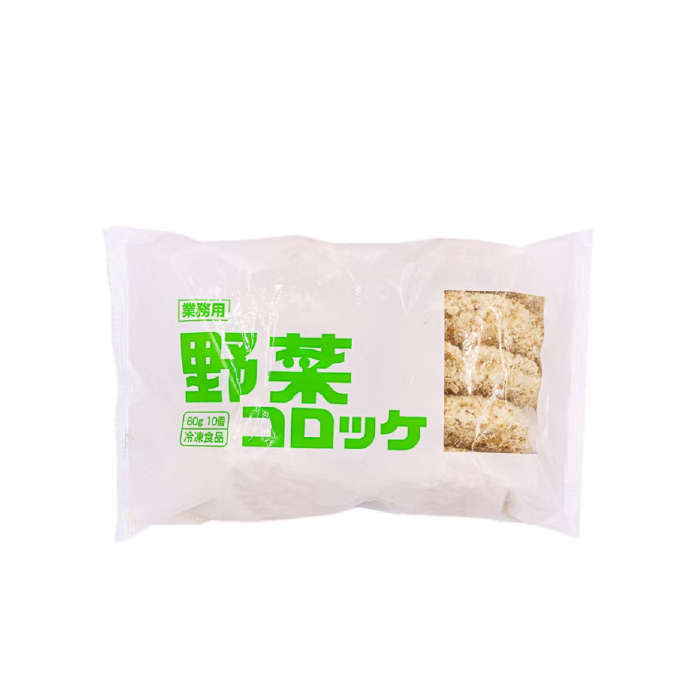
Frozen Vegetable Filled Korokke 600g
99,000đ/PACK
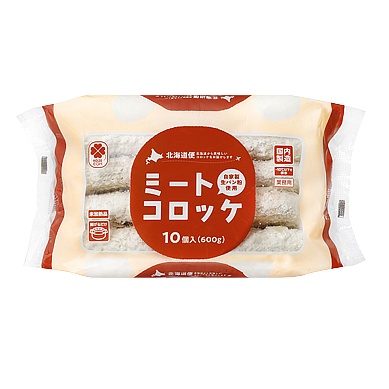
Frozen Meat Filled Korokke 600g
99,000đ/PACK
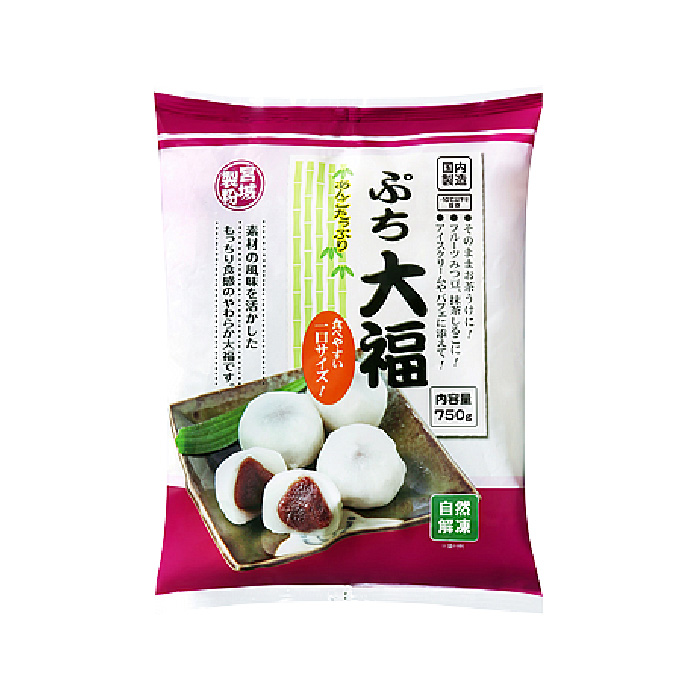
Frozen Daifuku Mochi 750g
115,000đ/PACK
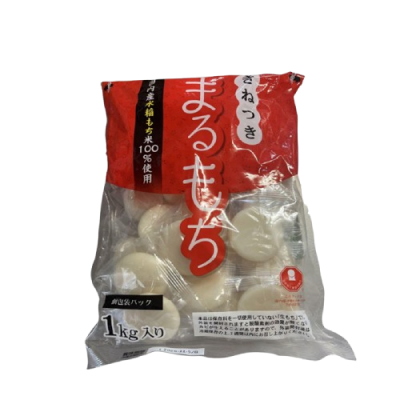
Maehara Seifun Dried Mochi 1kg
150,000đ/PACK
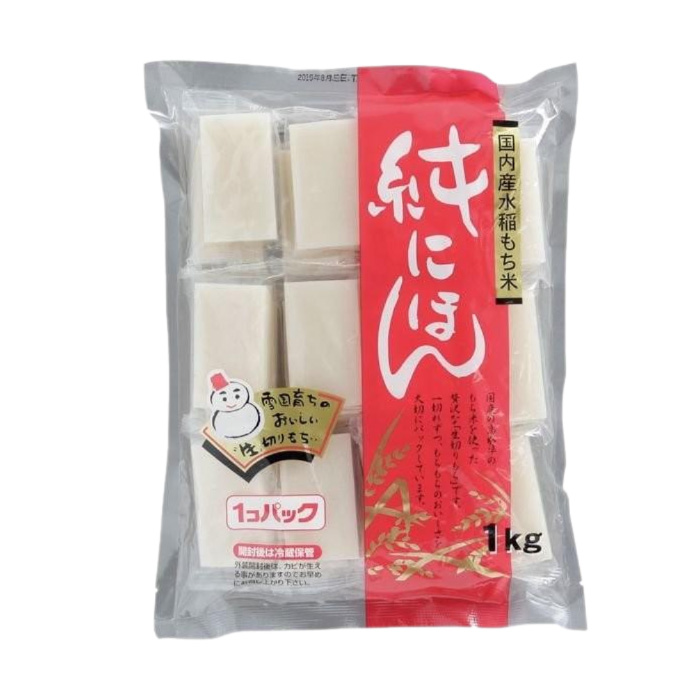
Original Flavour Mochi 1kg
145,000đ/PACK
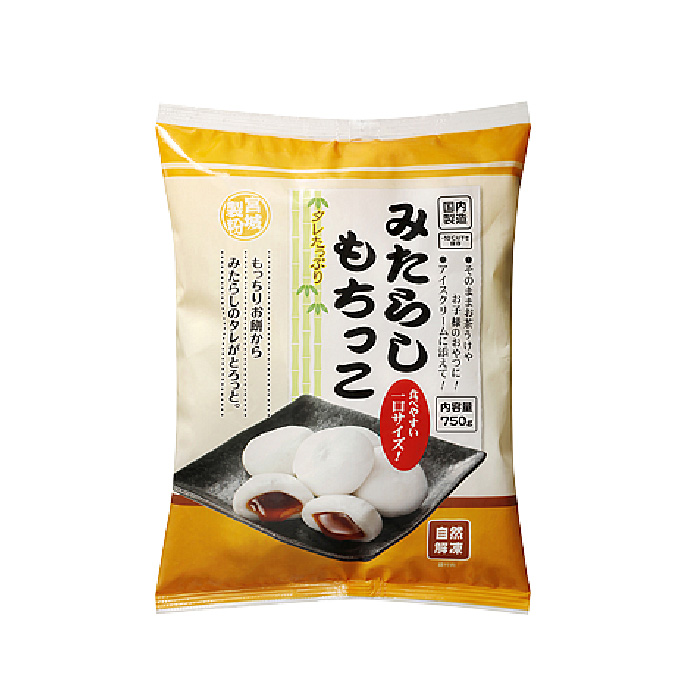
Frozen Mochi With Mitarashi Sauce Filling 750g
115,000đ/PACK
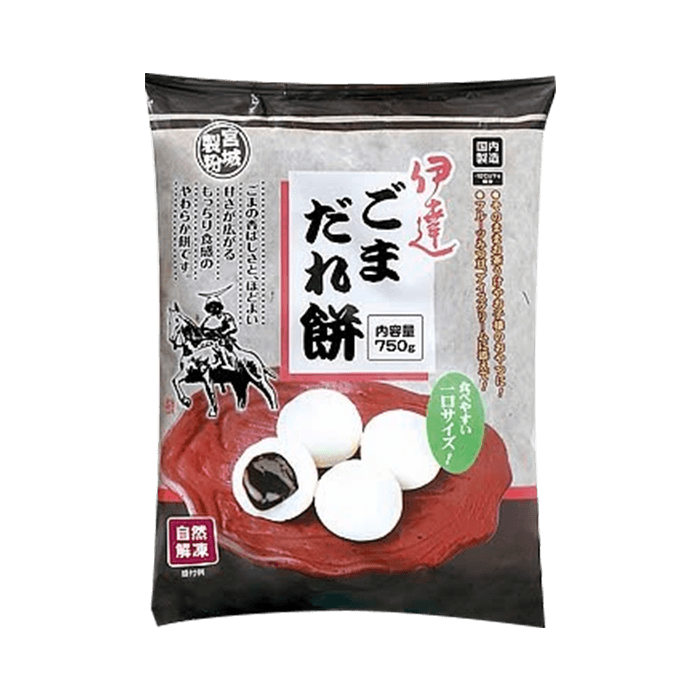
Frozen Sesame Filling Mochi 750g
115,000đ/PACK
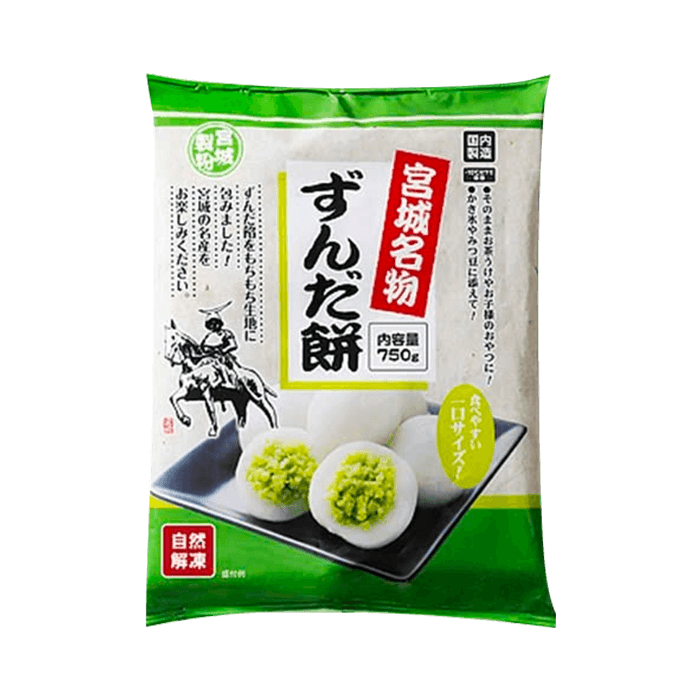
Frozen Green Bean Mochi 750g
115,000đ/PACK
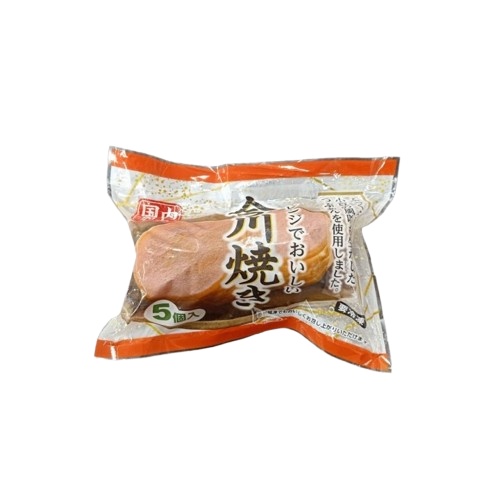
Imagawa Frozen Yaki With Red Bean Filling 400g
98,000đ/PACK
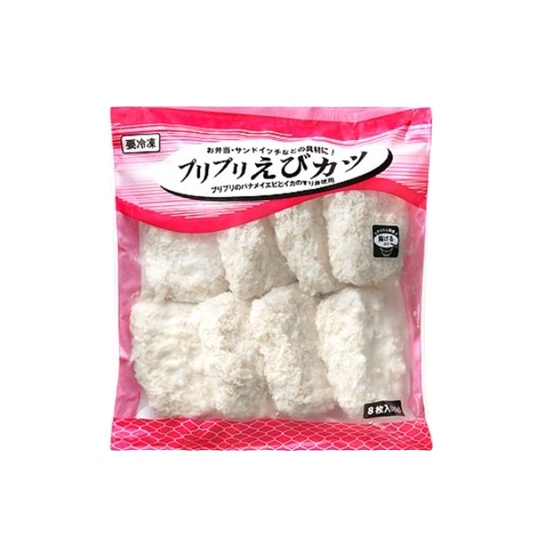
Frozen Fried Shrimp Cakes 400g
185,000đ/PACK
Conclusion
With the list of unique Japanese dishes above, hopefully you have more suggestions for your menu. Try to experience and discover the sophistication in each flavor, to better understand the unique culinary culture of the Land of the Rising Sun. Don’t forget to visit the Food and Lifestyle section and contact Kamereo today to get the freshest ingredients!
See more:



